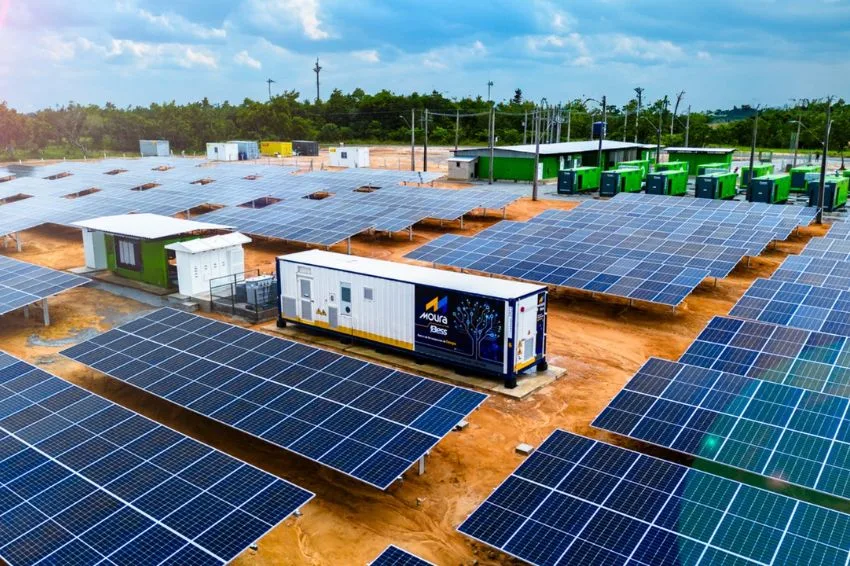The current economy is constantly changing, breaking paradigms and the need to create new mental, management and business models.
There is an increasing number of companies and organizations in the solar energy market, adopting the project structure in their day-to-day activities, with the aim of offering new products and services with professionalism.
Among some critical factors or requirements for success, the following stand out: agility, the ability to adapt, the power of innovation and the potential for continuous improvement in the face of resource constraints.
Competitiveness is the watchword of the moment, because, on the one hand, the heated solar energy market is growing rapidly, on the other hand, the participation of capable competitors is growing, which forces the search for efficiency.
In this scenario, the Project Management methodology proves to be an essential tool for increasing responsiveness to market demands.
Customers and investors look for service providers capable of acting promptly and quickly to meet their needs, generating value and contributing to the success of solar energy projects.
In this scenario, it is impossible to talk about medium and large solar energy projects without applying such a methodology.
Main Concepts
Planning has been a practice since the beginning of humanity's civilization, even without the tools, techniques and methodologies we currently have. Although project management as a practice has existed for centuries, it was only formally recognized as a profession after World War II.
Project management with systematized practices became a discipline in the 1980s, thus identifying areas of knowledge and techniques for project management.
This movement was led by PMI (Project Management Institute), which produced the Project Management Body Of Knowledge — PMBOK® (1st edition – 1996), document that systematizes the field of project management, seeking to standardize practices and providing the basis for training and education programs in project management.
According to PMI, a project is defined as “a temporary undertaking undertaken to create a unique product or service” (PMBOK). A NBR 10006 defines a project as a single process, consisting of a group of coordinated and controlled activities with start and end dates, undertaken to achieve an objective according to specific requirements, including time, cost and resource limitations.
The project can be divided into phases (process groups), where we highlight:
- Initiation: eknow that a project must start;
- Planning: plan actions to achieve project objectives in all its stages;
- Execution: coordinate people, companies, suppliers and resources to execute what was planned;
- Monitoring and control: ensure that project objectives are being achieved, taking actions to correct possible deviations;
- Closing: carry out formal acceptance of the project, closing it in an organized manner (lessons learned).
These phases interact with 10 areas of knowledge, which cover the entire project supply, which are:
- Scope;
- Time;
- Cost;
- Quality;
- Scratchs;
- Acquisition;
- Communication;
- Human Resources;
- Stakeholders;
- Integration.
But, after all, what is project management?
It is the “application of knowledge, skills, tools and techniques to project activities in order to achieve project objectives”, according to PMBOK®. Using these expertise, we are able to:
- Avoid surprises during the execution of work (in all phases);
- Anticipate risks and unfavorable situations that may be encountered;
- Facilitate, guide and document project reviews;
- Record and facilitate estimates for future projects;
- Speed up decision making.
Main functions of the project manager
The main functions and actions of solar project managers (managers and coordinators) vary greatly according to the size of the company, type of product and/or service provided and available resources. In general, they can be defined as:
- Precisely defines the scope to be delivered (documents in contract);
- Collects missing requirements, plans the project, monitors and controls its execution;
- Used as a methodology for project control, it uses your and the team's skills and know-how to add maturity in order to have more effective and efficient management in your projects;
- Coordinates interactions with customers (internal and external), suppliers and stakeholders;
- Keeps the project team focused on the delivery objective;
- Supervises, delegates, motivates and manages stress;
- Encourages effective communication at all levels (team, suppliers, field team, etc.);
- Manages scope, time and costs in all phases of the project;
- Establishes a set of practices to ensure the quality of project deliverables;
- Manages Risks at all stages of the project (control of management and contingency reserves);
- Coordinates and monitors the regulatory process and approval of project documentation at the concessionaire;
- Resolves conflicts with different expectations and needs;
- Monitors and manages electromechanical assembly work, final tests and commissioning until the start of operation of the solar park, transmission line and measuring cabin (substation).
Project Management Implementation: strategic advantages
The importance of project management for companies stabilized in the market certainly involves the capacity for innovation, agility in decision-making and commitment to honoring their deliverables (on-time projects), which will help to win new customers with the aim of maintaining – and even improving – its position in the market.
This is because the complexity achieved by contemporary companies requires specific management skills to decide and act in a context of great risks and uncertainties. Among these positive points, the following stand out:
- Strategic vision;
- Organizational structure adapted to work with projects and large supplies (know-how);
- Team concise and focused on project deliverables;
- Creative climate and constant learning;
- Effective communication;
- Projects delivered on contractual dates;
- Projects within financial budgets and in many cases, increasing profitability;
- Company becomes a 'reference' in the market.
Benefits of Project Management
It is very difficult for a project to be started and completed exactly as planned at the beginning. Most projects are dynamic, regardless of their size or complexity. Problems with suppliers and regulatory problems, internal failures, environmental situations, landownership and deviations normally occur throughout its execution.
Some arise from external obstacles, beyond the organization's control and others from management, but which can be mitigated or even avoided if there is effective project and risk management.
Companies are recognized in the market not only for their professionalism, but mainly for their flexibility and ability to meet the needs and expectations of their customers. According to PMBOK for a project to be successful, the project team must:
- Select the appropriate processes to meet the project objectives;
- Use a defined approach to adapt product plans and specifications to meet product and project requirements;
- Meet requirements to satisfy the needs, desires and expectations of interested parties;
- Balancing the conflicting demands of scope, time, cost, quality, resources, and risk to produce a quality product.
In addition, below are the main benefits that we were able to measure through the use of skills and Project Management expertise looking at the focus of the project supplier company, the end client and the project team:
Benefits for the organization/company:
- Increased productivity and profit with the efficient and effective use of resources;
- Faster and better return on investment, with on-time deliveries and expected costs;
- Improved competitiveness, achieved by increasing customer satisfaction;
- Improving the organization's internal communication (internal stakeholders)
- Better predictability of project results;
- Increased confidence in the organization's business capacity;
- Better capacity and agility to respond to changes requested by the customer.
Benefits for the end customer:
- Visualization of a structured organization prepared for the project with the possible changes that will certainly occur;
- Visualize that the project planning is clearly defined and meets your needs;
- Visualize that the project objectives are being followed and achieved;
- Visualize that project work is being carried out in accordance with requirements;
- Be satisfied with the final product of the project and with all the results obtained.
Benefits for the project team:
- Allow each team member to know exactly what they should do, when and how to do it;
- Participate in a cohesive, integrated team focused on the project objectives;
- Allow each team member to know at any time where they are and what their functions and activities are at that moment;
- Increased confidence of each team member in being able to perform and complete the work;
- Increased professional pride due to the ability to develop work.
Conclusion
Project Management tools and skills are differentiators that high-performance companies can offer their increasingly demanding clients. The pressure for deadlines, costs and quality, combined with the complexity of executing solar energy projects – especially medium and large ones – require the adoption of Project Management methodologies.
The use of these methodologies provides numerous advantages, including increased confidence and security for the entrepreneur, better control of activities, better control of suppliers, predictability and better management of changes, making projects successful.














